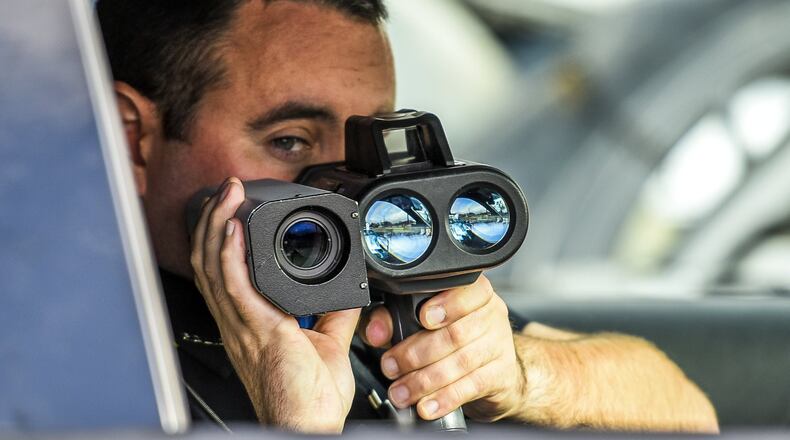“It’s a possibility but we may just file our own (lawsuit),” Adams said.
RELATED: Records indicate New Miami may have paused speed cameras after state law change
When the new state transportation bill passed, it reduced the amount of state financial aid local jurisdictions receive if they use speed cameras and added a new wrinkle mandating the courts handle speed camera citations as civil proceedings that include court fees and costs.
The cities of Dayton and Toledo recently won injunctions temporarily blocking the new state laws. Henley told the Journal-News when the law was passed the village would likely “let the big people fight it.” Adams said he does know if the village will sue or not but said its position is stronger now.
“It helps I think that we have the decision out of Toledo now and the decision out of Dayton,” Adams said about possibly filing its own suit.
The village has spent $359,105 in attorneys’ fees fighting the lawsuit over the old, unconstitutional speed camera program.
The last time the legislature tried to interfere with local jurisdictions’ speed camera programs the Ohio Supreme Court said the law was unconstitutional. But State Rep. Bill Seitz, who is also a lawyer and one of the architects of the new law, said he doesn’t believe the high court will find fault with these statutes. He said the last time officials tried to make the camera programs uniform statewide and the Supreme Court said that violated home rule. This time it is only about money.
“We’re not telling them how to run their programs, they can do whatever they want, they can put a camera on every corner if that’s what floats their boat,” Seitz told the Journal-News. “But we’re simply not going to subsidize you with state revenue if that’s how you choose to raise your revenue.”
To that Adams said “you have two common pleas judges who found that it did (violate home rule), who am I to disagree with them.”
The law took effect July 3, and Hamilton Municipal Court Clerk Michelle Deaton said the village has not filed any speed camera tickets.
She said the civil filing fee is $85, there could be other costs. The New Miami speeding tickets were $95. However, the village only keeps 64 percent of the fine collections, so for the 2,888 tickets paid this year through June — if the law had been in effect all that time — the village would have had to pay the court at least $245,480 and would have only collected $175,635.
Meanwhile, Butler County Common Pleas Court Judfe Michael Oster ruled Friday the village does not have to start its 10-year speeding ticket refunds totalling $3.4 million until all the appeals in the case are finished.
“This court hereby stays execution of this court’s final appealable order and judgment entry dated July 10, 2019, and and any proceedings to enforce such judgment until all appeals are resolved,” Oster wrote.
The speeders’ attorneys had asked Oster to safeguard the money when they opposed the stay.
It appears Oster didn’t grant this request since he didn’t mention it in his order.
One of the speeders’ attorneys, Josh Engel, said he wasn’t surprised Oster granted the stay. He said he isn’t concerned the village has halted its revenue-generating speed camera program. The village has collected $1.76 million under the new program.
“They’re just going to have to come up with revenue like everybody else comes up with revenue,” Engel said. “They spent this money on public goods and services, so to the extent that the people of that village benefited in getting all this through lower taxes in the past, they might just have to pay higher taxes in the future. They essentially used it like a credit card and so they’ve got to pay the bill as due.”
About the Author
